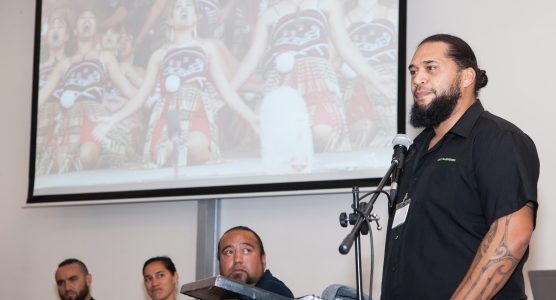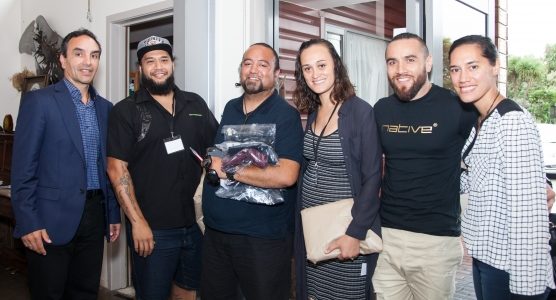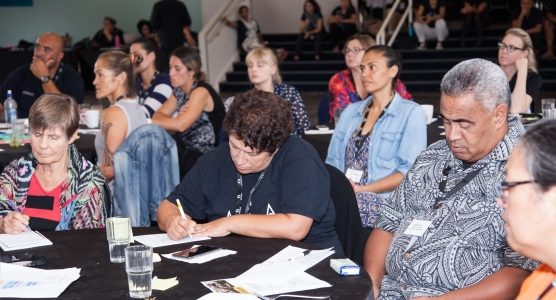22 May Toi Tangata Symposium 2017: Working the Kūmara Vine
The team at Toi Tangata recently held our one day Symposium “Working the Kūmara Vine” at Te Māhurehure Marae (Pt Chevalier, Tāmaki Makaurau). Around ninety participants across a range of sectors attended the symposium. Of the participants, around half were first time attendees of a Toi Tangata event.
Keynote speaker, Marama Davidson, shared her story on advocacy, identifying why she fought for justice and about tupuna endowed practices. Marama identified the importance of sticking to the issue to keep yourself safe, highlighting that if you attack people you can find yourself into troubled waters. She emphasised that it is important to decide what your contribution is, take action, understand the context, and make a decision.
In the afternoon, Carl Ross, CEO of Te Matatini Incorporated Society (and himself a former performer with Te Waka Huia for many years), opened the panel by identifying that wellbeing and kapa haka are intrinsically linked. His kōrero focused on kapa haka as being a vehicle to deal with issues ourselves, giving the example of many of rōpu scripts sent into Te Matatini which identified a range of contemporary wellbeing issues.

Paora Te Hurihanganui, kaiwhakahaere of Te Papa Tākaro o Te Arawa, identified coming through the renaissance of kapa haka, with the objective to learn whakapapa and mātauranga. Paora identified haka igniting your own breathe, including activities and games for all ages. Breath is a regulator of emotional behaviour. With high level groups, kapa haka was focused on the competition aspect not participation in the activity.

Beez and Kura Te Waati of Hawaikii Tū and Māori Movement, identified how Hawaiiki Tū filled a gap in the kapa haka space. Combining passion and potential they believe that knowledge is potential power and applied knowledge is power. Both Kura and Beez’ focus in the future is on kapa haka theatre with their students at Te Whare Wananga o Aotearoa, applying the whakaaro of kapa haka into another field and using kapa haka as the vehicle for the journey. Both were passionate about promoting healthy lifestyles which includes the provision of healthy kai at kapa haka wānanga. Māori Movement was a recent venture for them using atua to promote movement and stressing that there are different levels that participants can reach.

General Wihongi, kaiako and head tutor at Ngā Puna O Waiorea, provided living proof that kapa haka brings wellbeing to whānau, hapū, and iwi citing his own story. As a secondary school teacher, General identified kapa haka is an activity which sparks a flame for many rangatahi at secondary school.
Te Amohaere Morehu, a kaimahi from Whakataa Māori, identified her passion for kapa haka with her roopu Hatea. Amo identified the four parts of Te Whare Tapa Wha; Whānau- performing alongside whānau members; Wairua and hinengaro- going back to Pehiāweri to connect with her whenua and marae, the feelings and emotions that came with items performed, and interactions with members. Lastly, Tinana – practicing for a nationals bracket was great exercise!
Nga mihi ano to all our wonderful speakers and participants. The Toi Tangata Symposium was a great event and we couldn’t have done it without you.
Nā Megan Tunks



